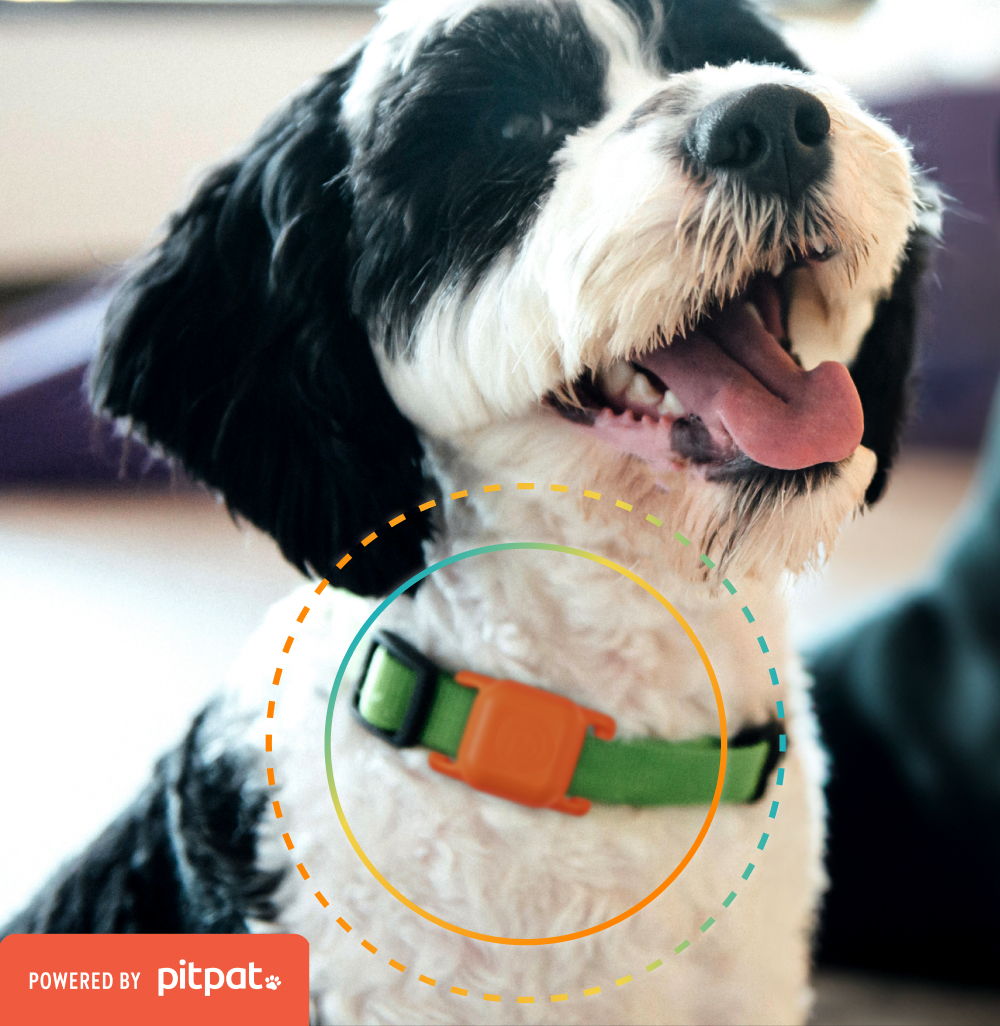Sneezing, Scratching & Licking: Is Your Dog Experiencing Seasonal Allergies?

Is your dog sneezing, scratching, or licking their paws more than usual? Allergy season has arrived, and if your dog is experiencing any of these symptoms, they may be suffering from seasonal allergies. Dogs are prone to allergies similarly to humans; however, they cannot tell us when they are feeling discomfort caused by seasonal pollens. As their pet parents, we must be knowledgeable about the signs and symptoms of allergies that may be impacting our pups.
Seasonal allergies may also be known as environmental allergies and can be activated by allergens such as dust, grass, pollen, and even mold. Dogs can be impacted by inhaling these allergens; however, many are also absorbed through a dog’s paws and skin. Reactions may range from mild to moderate to even severe, so it is in your best interest to monitor your dog during seasonal changes to know if they are not feeling well due to seasonal allergies. Keep an eye out for these common signs and symptoms:
- Biting and Scratching or Inflamed Skin: Excessive scratching or biting is considered the most common symptom of allergies experienced by dogs. This symptom becomes prominent when the skin encounters and reacts to allergens. The scratching and biting may provide immediate relief, but if proper care is not offered, red inflamed patches may appear where the allergen contacted the skin. Untreated patches may lead to secondary infections, such as a bacterial infection, due to the skin being opened.
- Constant Paw Licking: When your dog is experiencing allergies, their bodies push out histamines, a chemical found in the immune system that is triggered by allergens. Histamines are pushed to a dog’s paws, face, ears, or anal region. Your dog may lick their paws because these histamines are pushed to their extremities.
- Excessive Shedding: When your dog experiences itchiness from allergies, your dog may scratch more frequently, which may cause them to lose hair faster than normal. If you notice any dandruff residing on your dog, this may also be caused by heightened allergy exposure and itching.
- Chronic Ear Infections: Signs of an ear infection include the shaking of a dog’s head and red waxy ears. Ear infections and the previously mentioned symptoms are more likely to present themselves in dogs with floppier ears. If you notice these symptoms within your own dog, it is best to make an appointment with your veterinarian as your dog may be experiencing pain and discomfort that will require treatment.
- Respiratory Issues: Although not as common as the other symptoms, respiratory issues can indicate a more serious allergic reaction that could potentially be fatal. If your dog is wheezing, sneezing, coughing, or appearing to have any trouble breathing, take your dog to their veterinarian immediately.
There is no cure for canine allergies, but you can manage the symptoms and relieve any discomfort they may be experiencing. If your dog is experiencing any of the symptoms listed above, consider the following to make their allergy season less itchy and more comfortable.
Adjust Your Daily Walk Route or Routine
If your personal schedule allows for it, avoid walking your dog in the early morning or late afternoon. Pollen levels are typically at their peak at these times. Stray from fields or parks where there could be an abundance of pollens and plants stirring up allergy season. If your pup needs an alternative solution to avoid outdoor allergens, find a Dogtopia daycare near you for hours of play in temperature-controlled and thoroughly cleaned playrooms.
When you return home from your daily walk, thoroughly cleanse your dog’s paws and body with a damp towel or a hypoallergenic, fragrance-free grooming wipe from a local pet store. This will allow you to remove excess pollen and allergens from your dog’s fur and skin without having to fully wash them in a bath. While cleansing your dog, please pay special attention to their paws as they are sensitive and can be easily impacted by allergens.
Regularly Clean Your Home From Floor to Surface
Within your home, change your air filters regularly to limit airborne allergens that may enter through open doors and windows. Turning on an air conditioner or a dehumidifier will assist in reducing the moisture from inside air, which will make it more difficult for mold to grow within the bounds of your home. Minimize the time your dog spends in damp environments such as basements, bathrooms, or laundry rooms. These household rooms are more likely to contain unhealthy allergens and are more susceptible to the growth of mold. As a rule of thumb, vacuum at least once per week and regularly clean curtains, towels, and rugs that may have picked up dust, pollen, and other allergens.
A Clean Dog Bed Is the Best Dog Bed
Did you know your dog’s bed should be washed in hot water once a week? The surfaces your dog sleeps on may carry a variety of allergens, especially during allergy season. If your dog is suffering from allergies, consider adding a blanket or towel on top of their favorite bedtime spot. This will allow fewer allergens to penetrate their bedding, favorite chair, or your comforter and makes cleaning a breeze. If your dog has a favorite plush toy (or two), be sure to give them a regular wash to limit the spread of allergens, pollen, and dirt.
Time for a Bath
If your dog suffers from extreme allergy symptoms, your veterinarian may recommend regular baths to prevent dry and itchy skin. Be sure to wash their fur with a gentle, hypoallergenic anti-itch shampoo that includes calming ingredients such as aloe, oatmeal, or primrose oil. If you think you need assistance with your dog’s bath time experience, consider taking your dog to the nearest Dogtopia to pamper your pup and take full advantage of the full-service dog spa.
Supplements to Ease Allergy Season
If you know your dog experiences seasonal allergies or if you want to get ahead of potential symptoms, introduce fatty acids such as omega-3 or omega-6 into your dog’s diet. These supplements reduce itchiness and improve the overall health of your pup’s skin. Additionally, please ensure your dog’s water and food dishes are being regularly cleaned to prevent bacteria or allergy buildup.
Is Your Dog Still Scratching?
If your dog is continuing to irritate their skin during allergy season, please consult your veterinarian. Depending on severity, your veterinarian can provide a treatment plan that may include over-the-counter or prescription-level treatment options.












